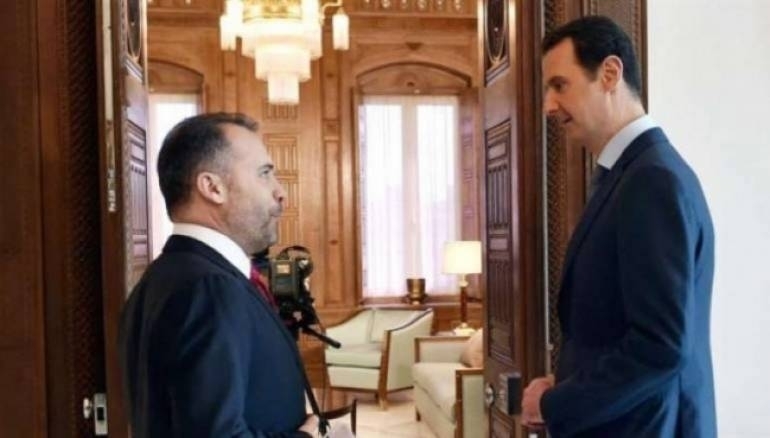Syrian activists have accused a Swedish newspaper of “polishing the image of Bashar al-Assad”, claiming the publication’s interview with the president was in response to the freeing of a reporter by regime forces two months ago.
In the interview published on Friday, Expressen newspaper ignored all bloodshed of the Syrian people since the start of the revolution in March 2011, activists said.
President Assad told Expressen that the Syrian crisis had been complicated by external intervention, referring to hostile including Turkey, according to Reuters.
Assad said UN envoy to Syria Staffan de Mistura was aware that if "he couldn't convince these countries to stop supporting the terrorists and let the Syrians solve their problem, he will not succeed".
The interview comes two months after the Syrian regime’s security forces released Expressen reporter Joachim Medellin, who was arrested in the city of Qamishli in northeastern Syria.
Medellin was arrested for one week last February along with Kurdish interpreter Omar Sabri during a media mission in the city, according to ARA news.
Activists said the regime blackmailed the newspaper to publish an interview portraying the tyrant as a ‘dove of peace’.
Kurdish People’s Protection Units (YPG) said Medellin was released after a swap deal with Assad forces; a claim denied by activists and rebels.
Assad has lost control over much of the country’s northern and eastern regions as pro-regime forces continue to fight for the control of Syria’s main population centers in the west, with the help Iranian forces and Lebanon’s Hezbollah.
In a series of interviews with Western media, the president has repeated his case that jihadist groups in Syria pose a threat to Western states.
"Syria is a fault line", Assad said. "When you mess with this fault line you will have the echoes and repercussions in different areas, not only in our area, even in Europe".
Assad also claimed Turkish military and logistical support was the decisive factor in the seizure of the northwestern city of Idleb by insurgents last month.
Idleb, only a short drive from the Turkish border, is the second provincial capital to fall to insurgents in the four-year civil war. It was captured by an alliance of Islamist groups including the Al-Qaeda-affiliated Nusra Front.
"Any war weakens any army, no matter how strong, no matter how modern", Assad told Expressen.
In the fall of Idleb, "the main factor was the huge support that came through Turkey; logistic support, and military support, and of course financial support that came through Saudi Arabia and Qatar."


